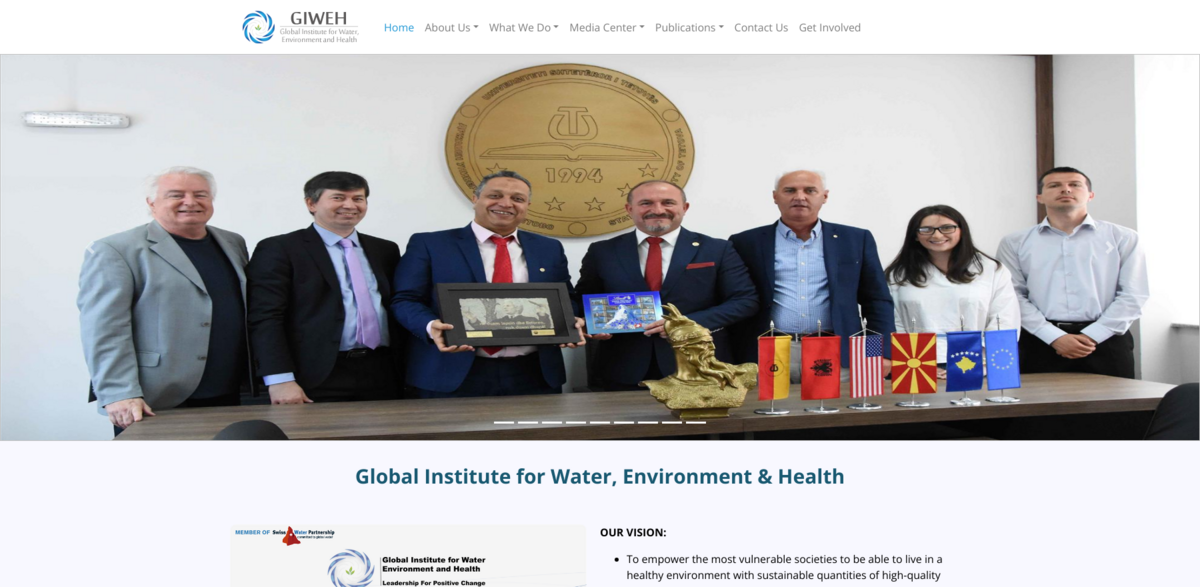Drinking Water Kiosks in Egypt: What the Project Is About
The Global Institute for Water, Environment, and Health (GIWEH), teaming up with the BENAA Foundation—an Egyptian NGO known for rolling out sustainable WASH solutions across Egypt and the MENA region—has launched the Drinking Water Kiosks project. This initiative aims to provide accessible, clean drinking water to vulnerable communities, tackling water scarcity and quality issues head-on.
Main Benefits of the Drinking Water Kiosks Project
Here’s what makes this project stand out:
- Collaboration between GIWEH and BENAA Foundation ensures local expertise and international support.
- Focus on sustainable water, sanitation, and hygiene (WASH) solutions tailored for Egypt and neighboring regions.
- Improves access to high-quality drinking water for vulnerable populations.
- Supports long-term health and environmental sustainability.
Support for Monitoring Water and Sanitation-Related SDGs and Rights in Nepal – Phase 1
This project is all about boosting knowledge and management of water resources and sanitation services in Nepal. The key move? Creating the Nepal Water Knowledge Hub—a national center packed with data and insights. Because, let’s face it, fair and efficient political decisions need solid, objective information. This hub is designed to help the Nepalese government govern water and sanitation better, making sure no one’s left behind.
Nepal Water Knowledge Hub: Filling the Data Gap
Nepal’s commitment to the UN’s Sustainable Development Goals, especially SDG 6, is clear. But there’s a catch: the country lacks centralized, complete data on water resources and sanitation services. The Nepal Water Knowledge Hub steps in to fix that, providing a solid foundation for decision-making, governance, and tracking progress towards sustainable water management by 2030.
Monitoring Freshwater in Kenya: Tackling Water Scarcity
Kenya faces serious water stress, with availability below 1000 m³ per capita per year. Add frequent droughts, deforestation, flooding, and population growth, and the challenge becomes even more urgent. The Kenyan Government is stepping up, committed to developing effective local and national measures to manage water better and protect this precious resource.
Water for Rural Development in Tunisia: Climate Change Challenges
According to the Intergovernmental Panel on Climate Change, the Middle East and North Africa are set to be the hardest hit by climate change in the coming years. Tunisia’s rural development depends heavily on water availability, making this project crucial. It focuses on adapting water management strategies to face these looming climate challenges head-on.
Project Impact: Linking to Sustainable Development Goals (SDGs)
- SDG 6: Ensure availability and sustainable management of water and sanitation for all.
- SDG 3: Good health and well-being, through improved water quality.
- SDG 13: Climate action, by addressing water-related climate vulnerabilities.
- SDG 10: Reduced inequalities, focusing on vulnerable and remote populations.
- SDG 17: Partnerships for the goals, through collaboration with local and international stakeholders.
Water Map: Citizen-Driven Awareness and Data Collection
Water Map is a cool, interactive set of maps highlighting water resources in the Canton of Geneva. What makes it special? It’s built on citizen initiatives—anyone can pitch in by collecting data. This participative approach not only raises awareness but also gets the general public involved in water resource management. It’s a great example of how community engagement can drive sustainability.


















